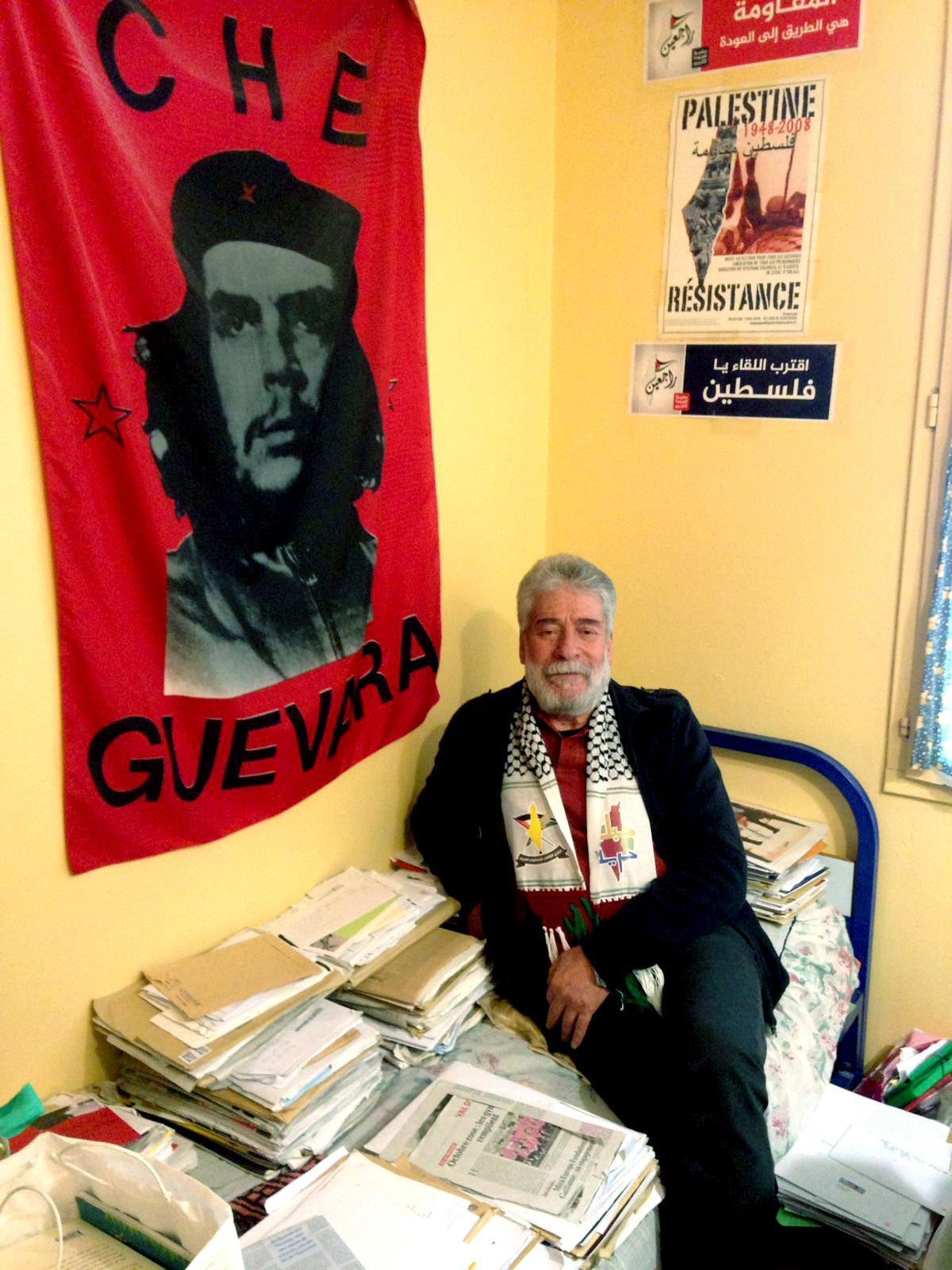
From Çorlu, Karatepe High Security Prison, 23.04.2025
Dear Georges Ibrahim Abdallah,
I send you my greetings and love.
How are you? I hope you are in good health and well-being. We are doing very well. I know a little about you from the news and the press. I know that you have been imprisoned in France for over 40 years, that you are a Lebanese communist, and that although you were supposed to be released after those 40 years, the Ministry of Justice blocked your release, and your case will be reviewed again on June 19. I hope and wish that you will be released on June 19.
About 20 years ago, around 2004–2005, we had a letter-writing campaign with political prisoners in Europe and the U.S. It’s likely that some political prisoners from Turkey corresponded with you during that time. When my spouse said she could translate and send the letter I write to you, I wanted to write and get to know you.
Let me first introduce myself so you won’t wonder, “Who is this?” I am a revolutionary prisoner from Turkey. This is my third time being imprisoned. In total, I’ve spent 16 years in prison. This entire period has been in isolation prisons (here they are called High Security Prisons). The years from 2000 to 2007 were marked by what we call the Great Resistance — a death fast against isolation that lasted 7 years and in which 122 revolutionary prisoners lost their lives. The resistance ended in victory in January 2007, and the isolation practices were acknowledged with promises for improvements. However, for those in power, isolation is a policy they feel compelled to implement as crises deepen. For this reason, from the early 2020s, they began constructing new isolation prisons, and even today, new ones are still being built. Probably, Turkey is the country that has built the most prisons in recent times. They are building these new prisons based on what they think went wrong in the previous isolation setups. The prison I’m currently in is the most common model being built and where the harshest form of isolation is applied. It consists of a small number of three-person cells, and mostly single-person cells. The single cells are about 15 square meters. There is no exercise yard for each cells; we’re allowed into a shared yard for only 1.5 hours a day. In the previous prison types, each cell had its own small yard. The building has three floors, with 6 cells per corridor. These 6 prisoners can go out into the yard together. Currently, there are 3 of us in the corridor, and we go out together, with the other 3 cells left empty. The rest of the time is spent inside the cell. The windows have both bars and wire mesh, so there’s poor air circulation and little visibility of the sky.
Of course, the most important part is the purpose of the isolation: to strip us of our political-revolutionary thoughts, to force surrender. This makes resisting isolation our main focus as revolutionary prisoners. For this reason, in many isolation prisons, 10 revolutionary prisoners are on indefinite hunger strike. Their main demand is to be transferred from these “well-type” prisons to others where friends from the same case are held. I also started an indefinite hunger strike on March 30 for this purpose — today is the 25th day.While our main focus is isolation, we also try to follow national and global developments as much as we can — Ukraine, Gaza, events in the Middle East, Trump’s threats and actions. As the crisis of imperialism deepens, its aggressiveness increases. The people are not yet organized enough to respond to this aggression on a sufficient scale. But aggression creates opportunities for resistance, and resistance creates opportunities for organization. The people of Gaza, especially, have paid and continue to pay a heavy price, but they are showing the whole world — and all oppressed peoples — that it’s possible to resist no matter the scale or power of the aggression.
We firmly believe that oppressed, resisting, and unyielding peoples will ultimately win.
I don’t know your conditions or opportunities, but I assume you are trying to follow developments closely as well.I wonder what you will encounter and how you will react once released. It will be like being teleported from the world of the 1980s to the 2020s. Of course, a revolutionary will grasp and adapt to the situation much faster than an ordinary person — there is no doubt about that.I would really like to hear your thoughts and feelings, and have you share your experiences.
How is your health? Forty years of imprisonment surely has its effects. I hope you don’t have any serious health problems. What are your conditions like? How do your days pass? Do you receive visitors?
I have so many questions. I hope this letter reaches you and that I can get a response.I’ll end my letter here for now. I hope you are released as soon as possible and regain your freedom.
Take good care of yourself.
With greetings and love,
Fikret Akar